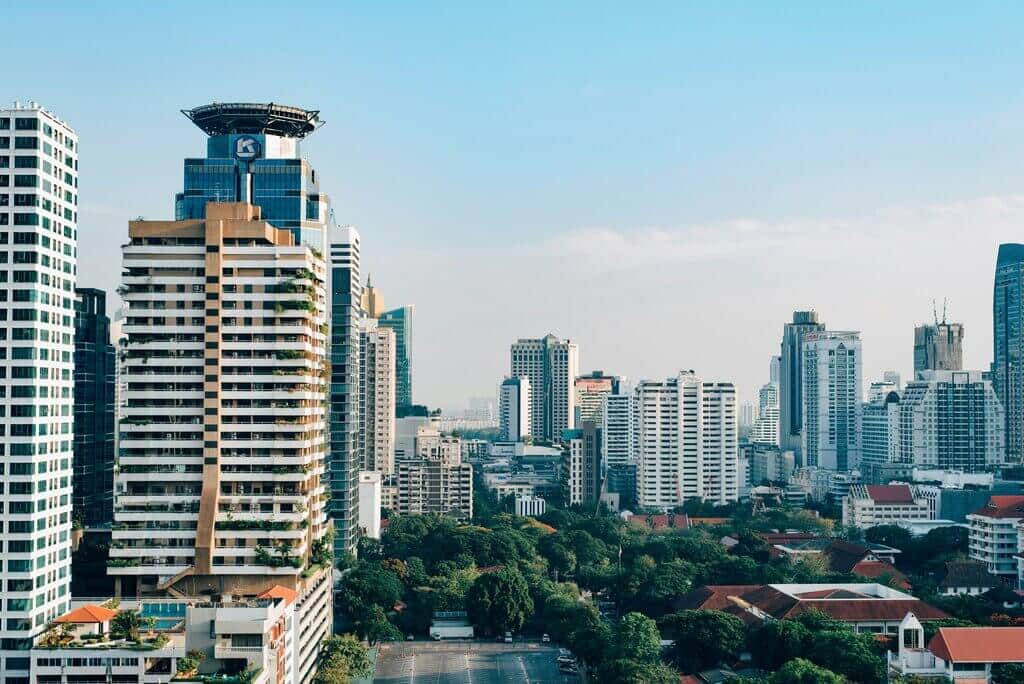What are the differences between commercial and residential real estate?
Residential vs. commercial real estate are very different regarding their goals and the connections they create between landlords and tenants. Residential properties, such as townhouses, condos, apartments, and single-family homes, are meant to accommodate people and families. The landlord significantly impacts the tenants’ day-to-day lives since investors usually rent these apartments to make money. They are more concerned with personal matters like maintenance and living conditions because the tenants live in these areas.
Hotels, retail establishments, warehouses, and office spaces are properties meant for commercial use, highlighting the difference between commercial and residential properties in the Philippines. Companies often prefer to lease real estate rather than buy, which offers real estate investors opportunities. By renting commercial or residential buildings rather than buying real estate, businesses can keep more cash available for other essential expenses and activities crucial for running their business effectively. Profitable businesses are more reliable tenants for commercial spaces because they offer a degree of financial dependence not typically found in residential leases.

7 reasons to invest in commercial property in the Philippines
Investing in commercial property in the Philippines offers significant advantages that can lead to substantial long-term returns. Here are seven reasons you should invest in commercial property in the Philippines.
1. Longevity of returns
Commercial real estate is a perfect example of how the best investments can last over time. Unlike residential properties offering quicker returns, commercial apartments require a more extended investment timeline. Renovations and tenant acquisitions take longer in commercial real estate than residential property in the Philippines, but the financial rewards can be substantially larger in the long run.
2. Varieties of commercial properties
Commercial real estate offers a diversity of property types, each with its own set of advantages. The five primary sectors are:
- Malls
- Industrial estates
- Offices
- Apartment buildings with multiple units
- Warehouses
Selecting the right type of commercial property is crucial for high investment returns. Conduct thorough research to determine which sector aligns best with your investment targets.
3. Consistent cash flow
Commercial properties often have longer leasehold periods, providing a steady cash flow. Moreover, these properties usually have more units than residential buildings, multiplying your income streams. Additionally, many commercial leases operate under a triple net lease arrangement, where tenants handle costs like insurance and maintenance, thereby boosting your profits.
4. Longer leases
Long-term leases are a significant advantage in commercial real estate in the Philippines. These leases extend for several years, offering stable and predictable income over time, which is much more appealing than the typically shorter lease in residential properties.
5. Limited operational hours
One often-overlooked benefit of owning commercial property is the limited operational hours. Unlike residential properties, where tenants may require assistance 24/7, commercial properties run on standard business hours. This feature offers you a more balanced work-life as an investor, relieving you from night-time emergency calls.
6. Business relationships
Investing in commercial real estate in the Philippines provides opportunities to build valuable business-to-business relationships. Interactions with business owners who rent your property can expand your professional network, a benefit rarely found in residential investments.
7. Limited competition
The limited competition can give you a competitive edge, making it easier to acquire desirable properties without the stress of bidding wars.

Why should you invest in residential property in the Philippines?
Investing in the residential property market in the Philippines presents many opportunities for local and international investors. Here are a few compelling reasons to consider.
1. Constant market expansion
Property values tend to rise over time in cities where the housing supply is limited while demand remains strong. Due to this sustained growth, investing in residential real estate in the Philippines is considered wise and profitable.
2. Passive rental income
For investors seeking a reliable source of income, renting out residential homes can be pretty profitable. Higher rental rates can frequently offset monthly amortization expenses, giving rise to a reliable passive income stream. Rental revenue can also be increased by turning properties into Airbnb or lodgings close to popular tourist attractions. However, frequent restorations and minor upgrades may be required.
3. Tax incentives
The Philippine government provides several tax benefits and deductions for those who invest in residential real estate. Deducting operating, maintenance, and ownership expenditures can save significant money on taxes.
4. Physical asset and control
Real estate is a physical asset that typically holds or increases in value over time, especially as demand for residential homes and land rises. Property ownership gives investors autonomy over other asset types, allowing them to furnish and renovate it as they see fit.
5. Maximize potential
Because real estate properties make for large collateral, many financing options are available for residential real estate investments. Leveraging techniques such as mortgage down payments can increase possible return on investment. Because of this, investing in residential real estate in the Philippines is both financially favorable and feasible.
Expect assistance for buying real estate in the Philippines
Deciding between residential and commercial real estate in the Philippines can be challenging, but our experienced team is here to help. We provide comprehensive support throughout the buying process, from understanding the market and legal requirements to finding the ideal property for your needs. Whether you are looking for a home or an investment opportunity, we offer personalized guidance to ensure a smooth and successful purchase. You can also email us at [email protected] for detailed inquiries and tailored assistance. Reach out to us today and take the first step towards securing your property in the Philippines with confidence!

Frequently Asked Questions (FAQs)
What type of commercial real estate in the Philippines is the most profitable?
The most profitable type of commercial real estate in the Philippines typically includes properties that offer higher returns, such as office buildings, retail spaces, and industrial estates, generally providing returns between 6% and 12%.
What is considered commercial property in the Philippines?
Commercial property in the Philippines is considered property used for business purposes, such as office buildings, retail spaces, warehouses, and industrial properties.
Can foreigners invest in commercial real estate in the Philippines?
Foreigners can invest in commercial real estate through long-term lease agreements or buy real estate through a domestic corporation.
How can a foreigner buy a residential property in the Philippines?
Foreigners can buy residential property in the Philippines by legally owning a condo unit through the Philippine Condominium Act, provided that Filipinos own 60% of the building. Alternatively, they can consider a long-term lease agreement with a Filipino landowner to buy a house.






